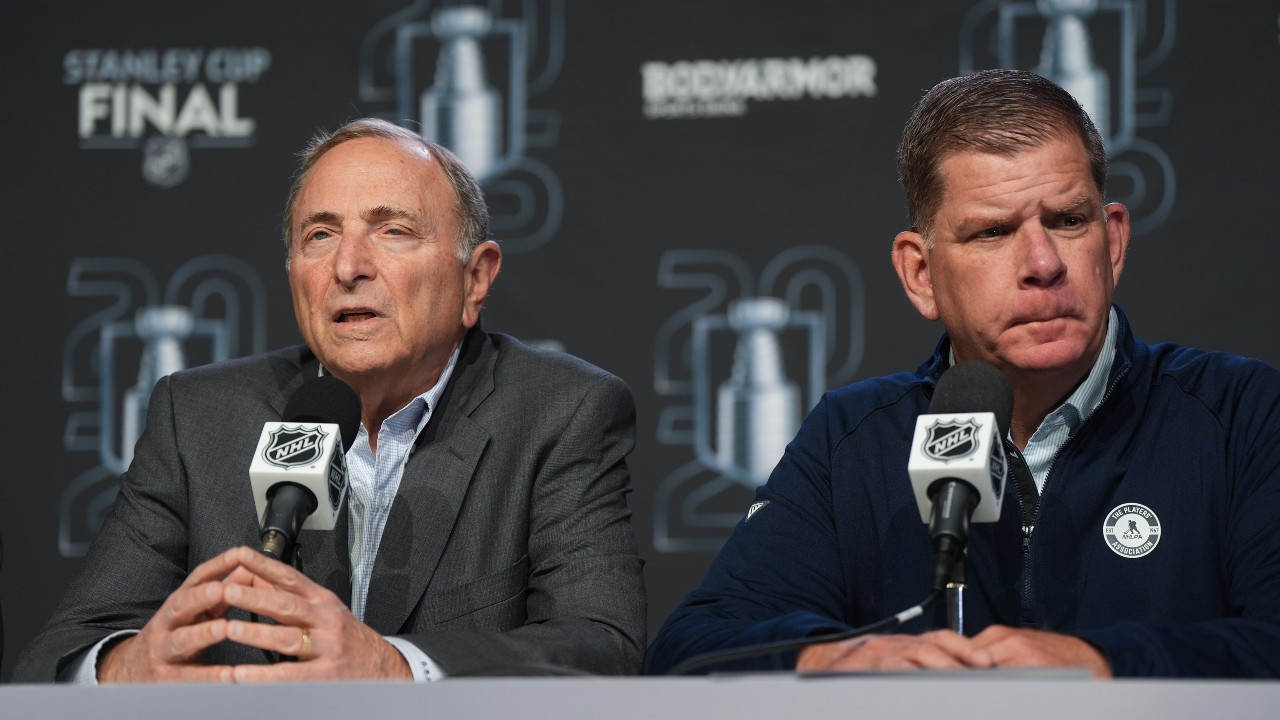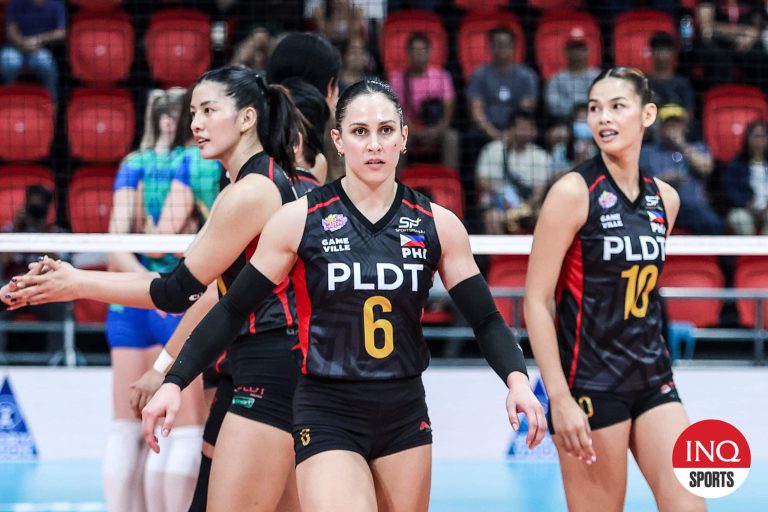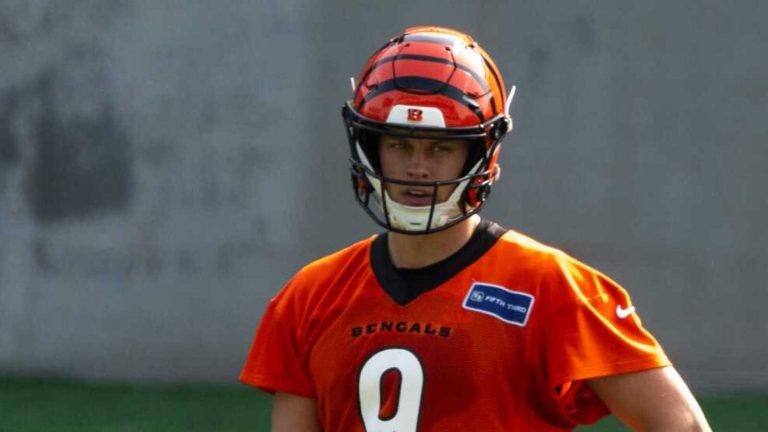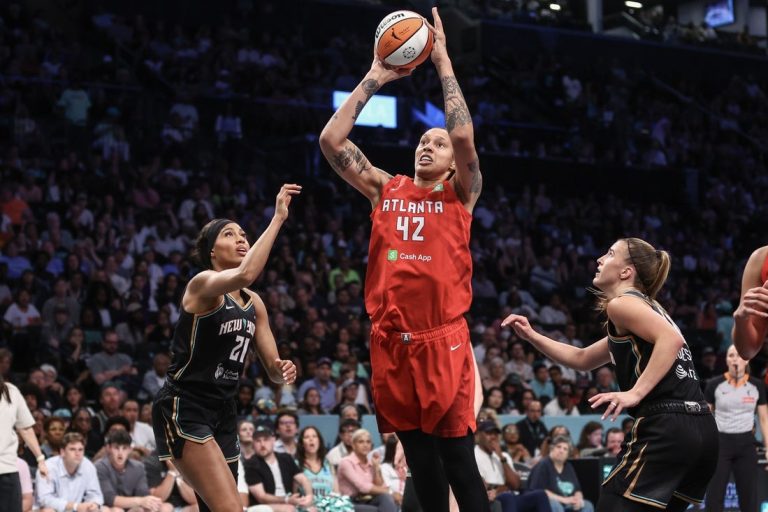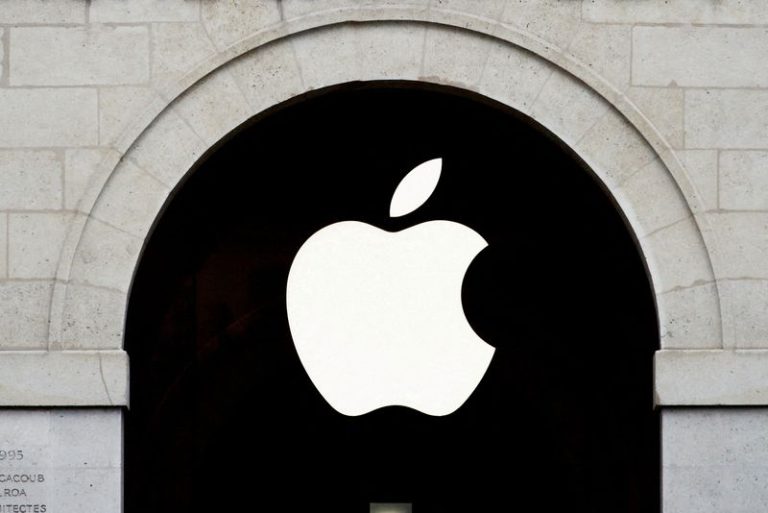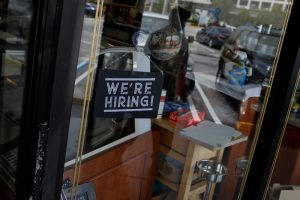EDMONTON — The state-tax issue is a non-issue, according to the NHL power brokers currently in the thick of hammering out a new collective bargaining agreement between the league’s owners and players.
“Certainly, it’s an issue that some of our franchises have raised as a concern,” NHL deputy commissioner Bill Daly said Wednesday evening in Edmonton, before the opening of the sixth consecutive Stanley Cup final to feature a team from a no-tax state. “What I’d say at this point is, we don’t share the level of concern that they have.
“These imbalances have existed forever. Like, there’s nothing new here. There are so many reasons why a player may choose to play in a particular location, for a particular team, for a particular coach that have nothing to do with the tax situation in that market. So, I don’t expect it’s anything we’re going to address proactively as part of this collective bargaining negotiation.”
That the well-managed Florida Panthers have taken the baton from the well-managed Tampa Bay Lightning and represented the tax-free Sunshine State in three consecutive finals, and that Vegas Golden Knights — hailing from tax-free Nevada — have already been to three finals since their inception in 2017-18 has GMs and fans in heavily taxed provinces and states screaming “No fair!”
NHLPA assistant executive director Ron Hainsey said he is “baffled” that state tax rates have become such a hot-button topic.

-
Watch the Stanley Cup Final on Sportsnet
With the Stanley Cup within reach, the Edmonton Oilers and Florida Panthers are set to battle once again for hockey’s ultimate prize. Watch every game of the Final on Sportsnet and Sportsnet+.
“From 2008 until 2020, who ran this league? Pittsburgh, Chicago, Los Angeles, Detroit, for a brief amount of time. Boston. Certainly (Brad) Marchand and (Patrice) Bergeron and (Zdeno) Chara could have made more money somewhere else. They didn’t. They chose to stay,” Hainsey said.
“They were a good team. Made for the finals a bunch of times. Pittsburgh — I’m certain Sid (Crosby) or Geno (Evgeni Malkin) or (Kris) Letang could’ve made more money somewhere else. They stayed there the whole time.
“Why? Good team. Liked where they lived. Didn’t want to move. Same thing in L.A. What do they all have in common? They all have a different tax situation from Florida, right? That was 12 years. Now we’ve had six years of Tampa, Tampa, Tampa, Florida, Florida, Florida. Just going off the previous 12, I guess we’ve got to wait six more years to see if there even is an issue, right?”
Winning championships isn’t solely based on free agents taking haircuts they can make up in tax breaks. Panthers GM Bill Zito stresses the importance of committed ownership; building a winning, inclusive culture; and addressing needs via trade.
“The tax thing is marginal at best,” Zito said.
To build a state and provincial tax clause into the salary cap would get complicated. Plus, each NHL city has a different cost of living. And what about all those Canadians benefitting from U.S.-dollar paycheques but paying their bills in Canadian currency?
Is the no-state-tax issue being blown of proportion?
“Guys like their paycheques being bigger. I mean, I’m sure that could be a part of it,” said Panthers defenceman Seth Jones. “But that’s just the way it’s happening right now. You know, in 10 years you might see something else happening. I think it’s just a wave.
“These teams have also drafted well. You look at the players on some of these teams, they’ve drafted them, and they’ve been here their whole careers. So, I don’t know. Maybe it’s looked into too much.”
Hainsey says the topic does come up amongst the PA at times, but certainly thinks it’s overblown.
To cry foul because Florida and Tampa are having their moment here, where good players took less to stick with good teams, is an overreaction, he argues.
“It’s the same thing that’s happened the previous 12 years, right? With all these other teams,” Hainsey said. “Is it really an issue? You know, I’m not certain that it is at this point. I don’t know if we could expect Florida and Tampa to not be great at some point in the cycle.”
CBA talks between commissioner Gary Bettman and NHLPA chief Marty Walsh will continue regularly throughout the Cup Final — well in advance of the 2026 deadline.
“We are having very constructive, professional, cordial dialogue,” Bettman said. “We have more than a year to go and I think we’re in really good shape, having really good discussions.”
Walsh did not place a timeline for when he expects a new CBA to be announced but characterized negotiations as positive and ongoing.
“I feel good with where we are, and we’ll see what happens,” Walsh said.
“It gets complicated at certain times, any collective bargaining agreement, but it’s not where it was in the past here where you’re seeing national disputes between organized labour and companies.”
• The agreement to send NHL players to the ’26 Olympic Games has not been signed yet, but Walsh assures that it’s simply a matter of “dotting the I’s and crossing the T’s.”
What has been determined, though, is that Russia will not participate, as per the recent announcement made by the IIHF and IOC.
“They’re disappointed — and it’s out of their control,” Walsh says of his Russian contingent. “There’s not much they can do with what’s happening within Ukraine and Russia. And they want to play best-on-best. I mean, we hear it all the time.
“We were hoping that by this point in time, the conflict of the war would not be where it is. It seems like it’s escalating instead of de-escalating.”
• The NHL won’t hold a formal bid process for when it expands next, but it only seems to be a matter of time before a 33rd and 34th team join the circuit.
“There are some (hopeful owners) we’ve talked to more than others,” Daly said. “But there’s a lot of interest, which I think we’re gratified with.”
Surely, it can’t sit well among players that, under the current CBA, all those juicy expansion team fees go directly into the pockets of the owners and are not lumped in with hockey-related revenue that gets split 50/50.
Walsh bites his lip on the issue: “We’ll cross that bridge when the time happens.”
• Bettman maintains that, despite some rumblings, he is not devising a succession plan for the commissioner’s chair: “Sorry to disappoint.”
• On the likelihood of returning to an in-person draft in 2026, Bettman said: “What we do will be in response to what the clubs tell us they want.”
• Don’t hold your breath for play-in rounds, expanded overtime, penalty jailbreaks or any other major changes to the game. “We don’t think we need to tinker with the rules,” Bettman said.
